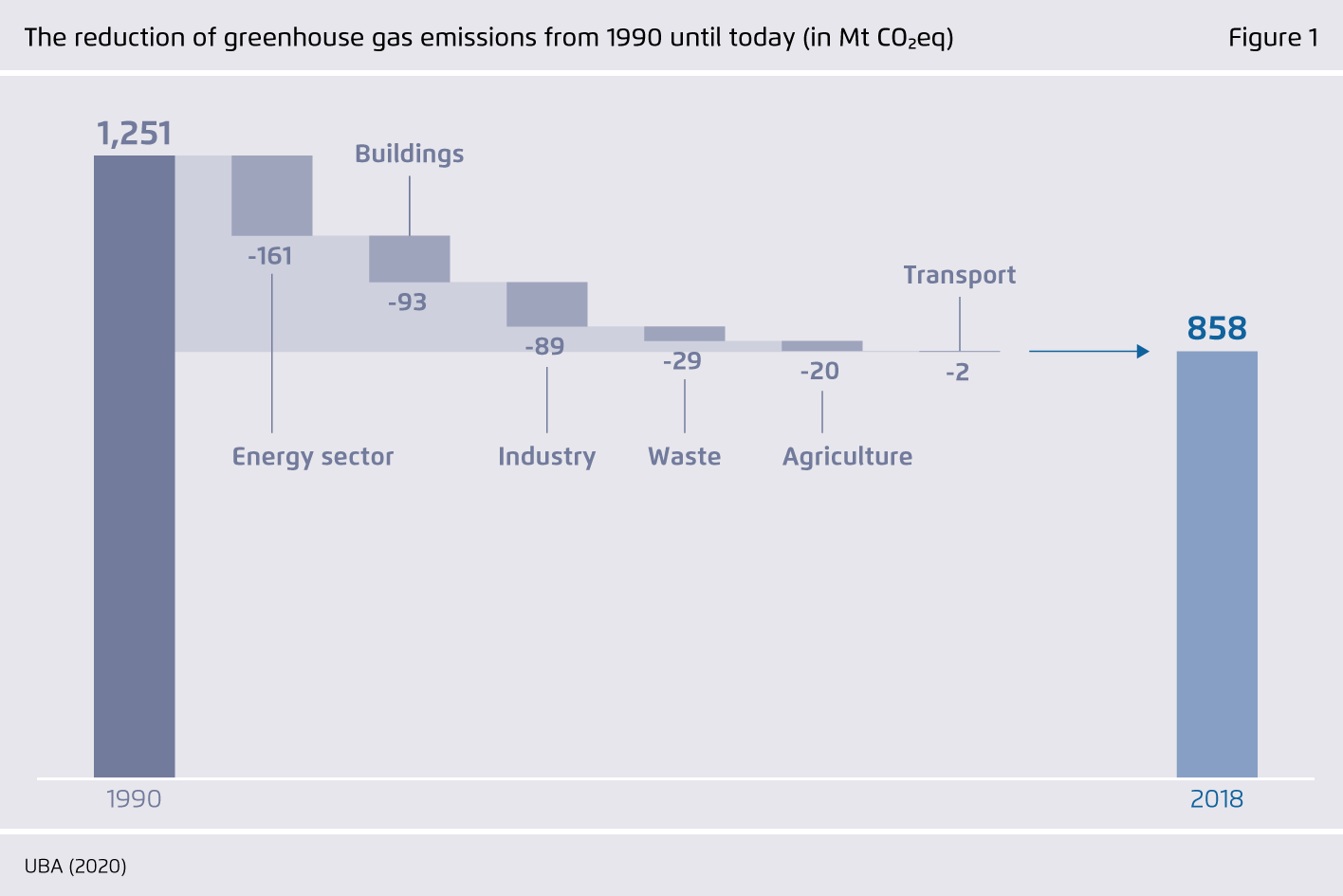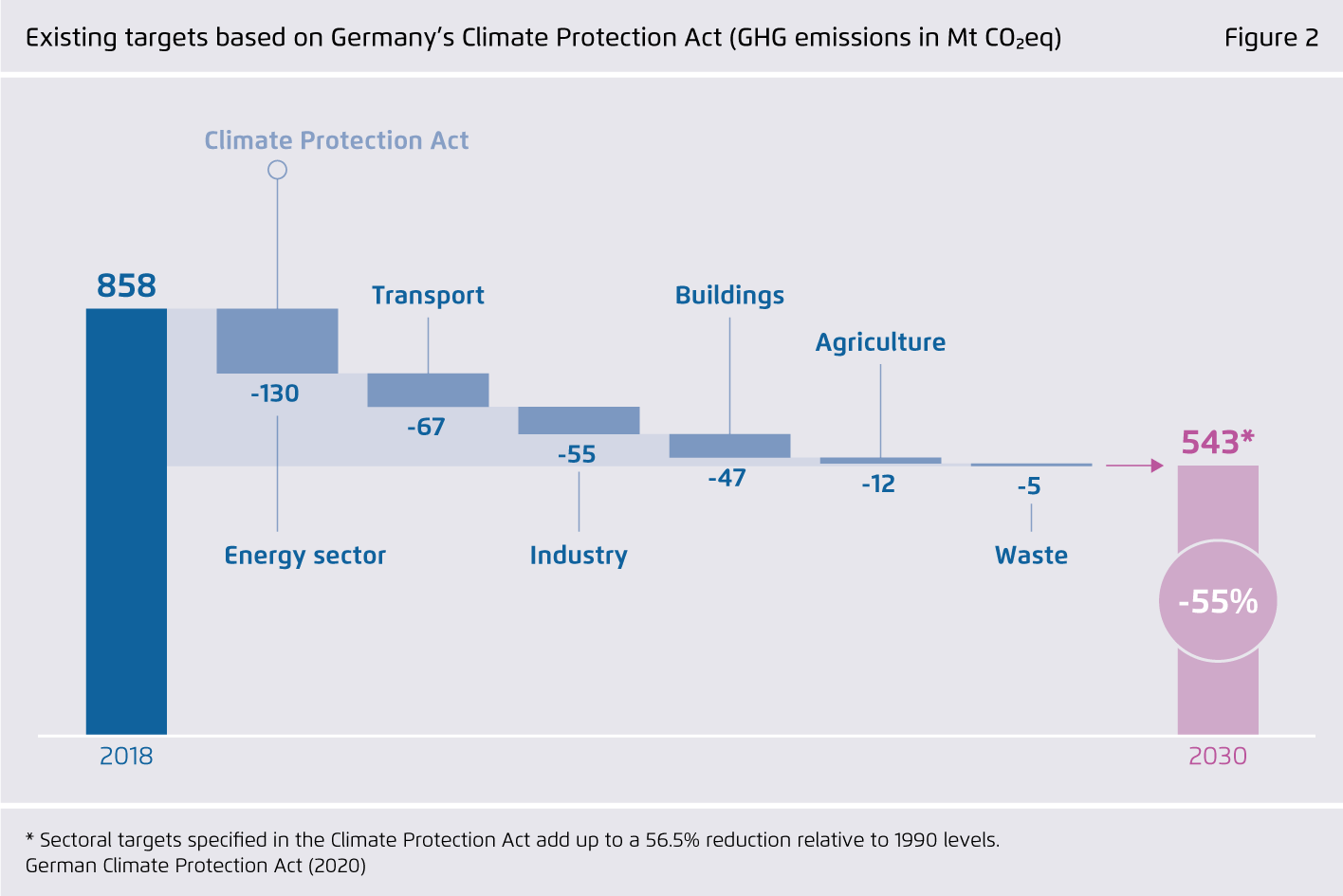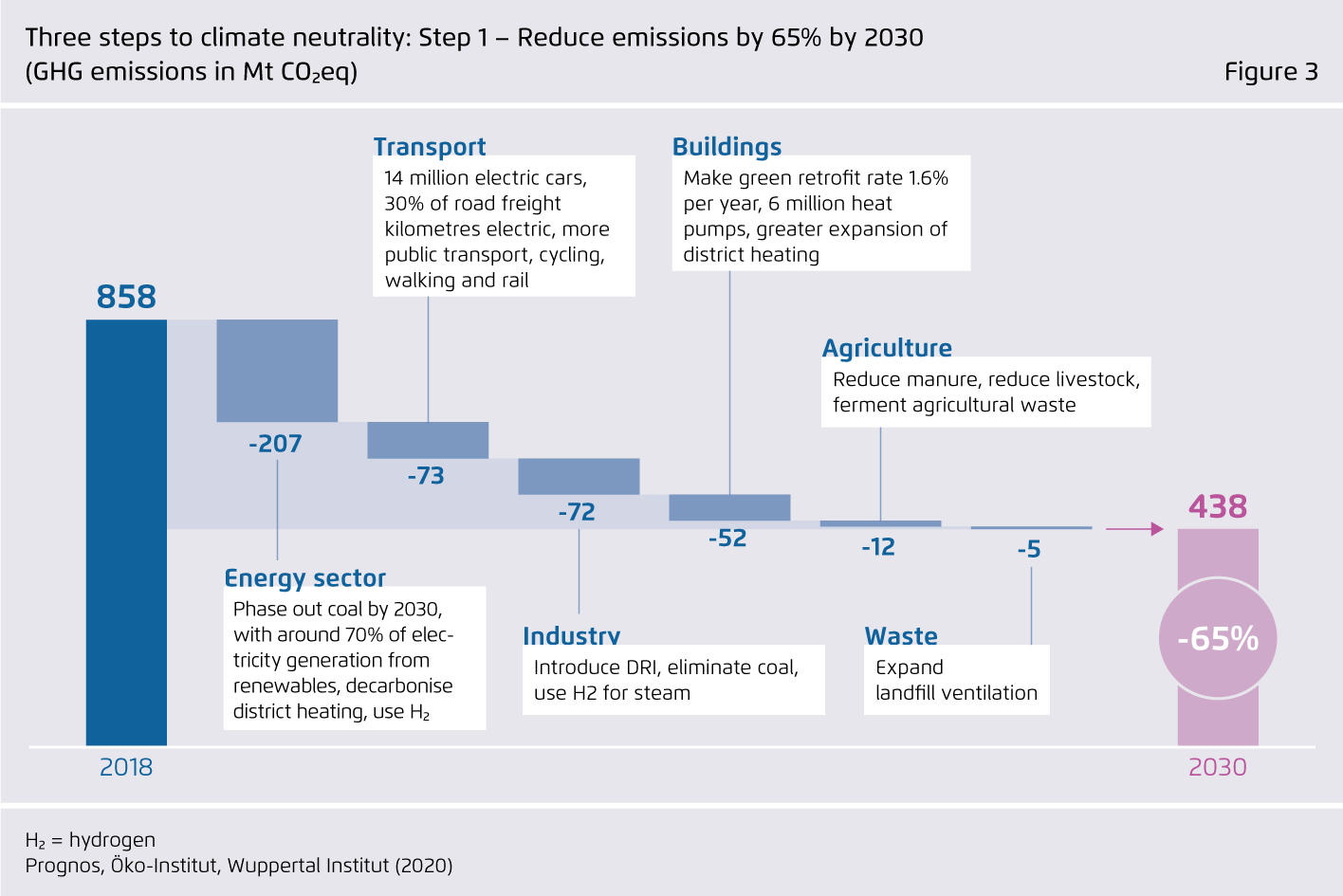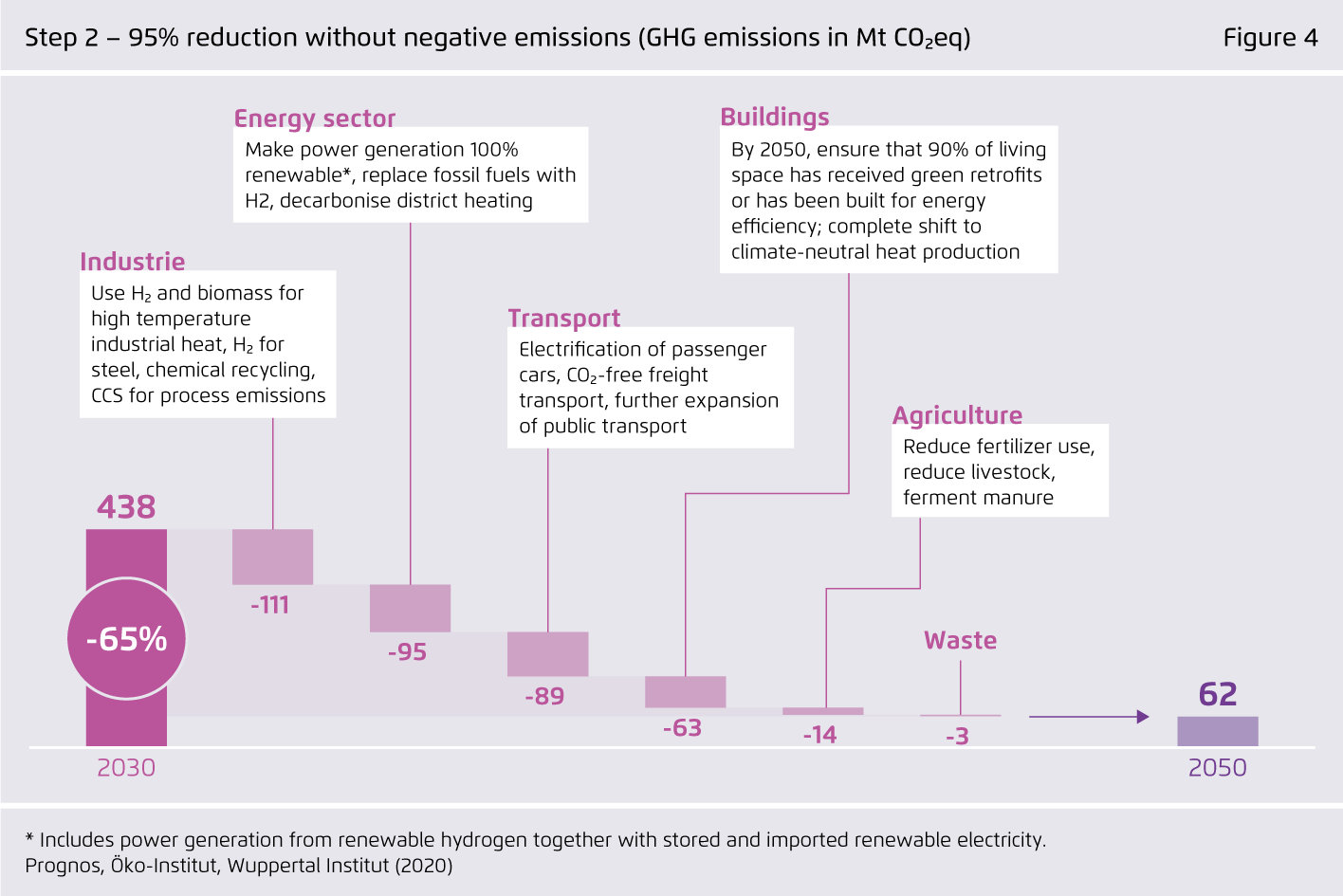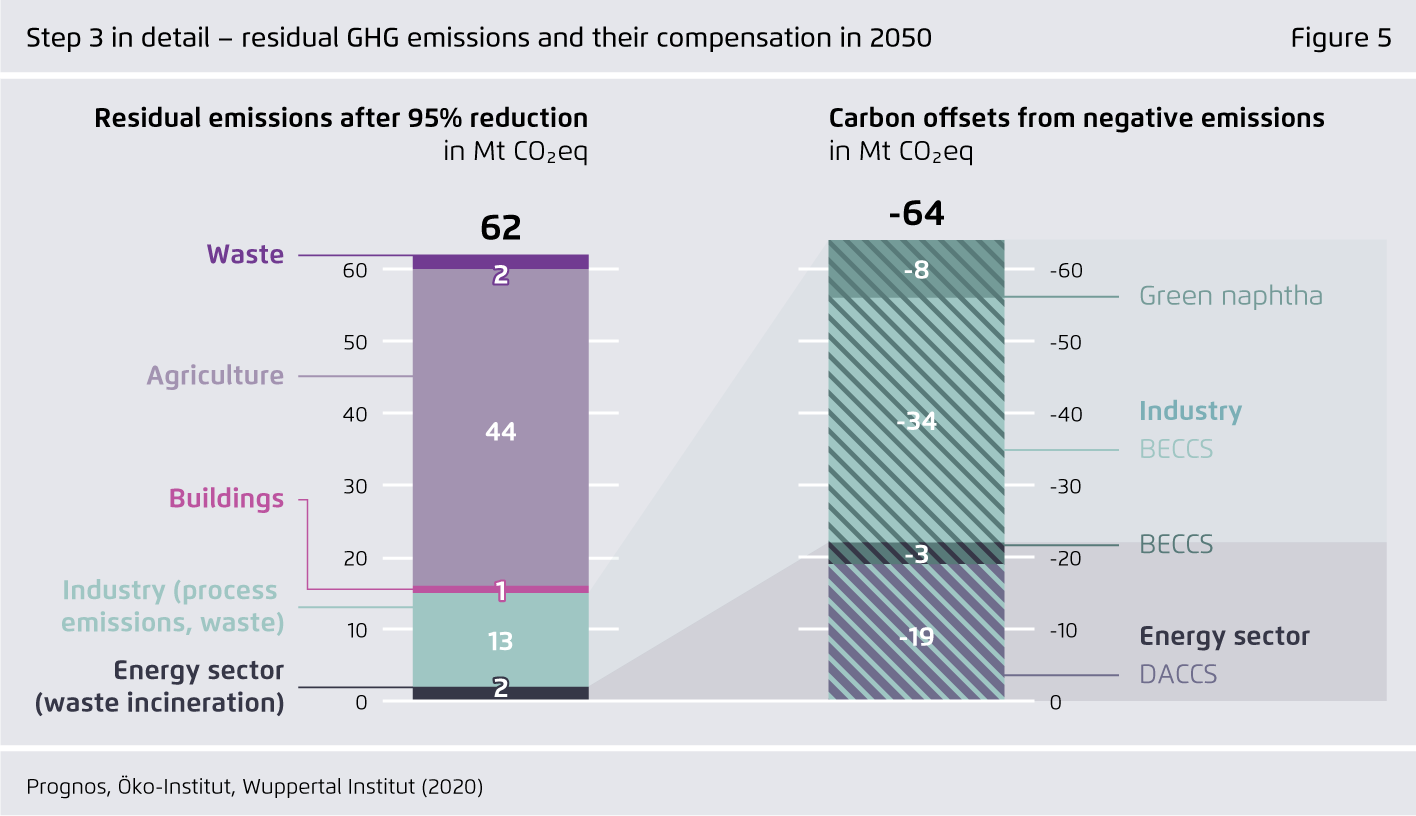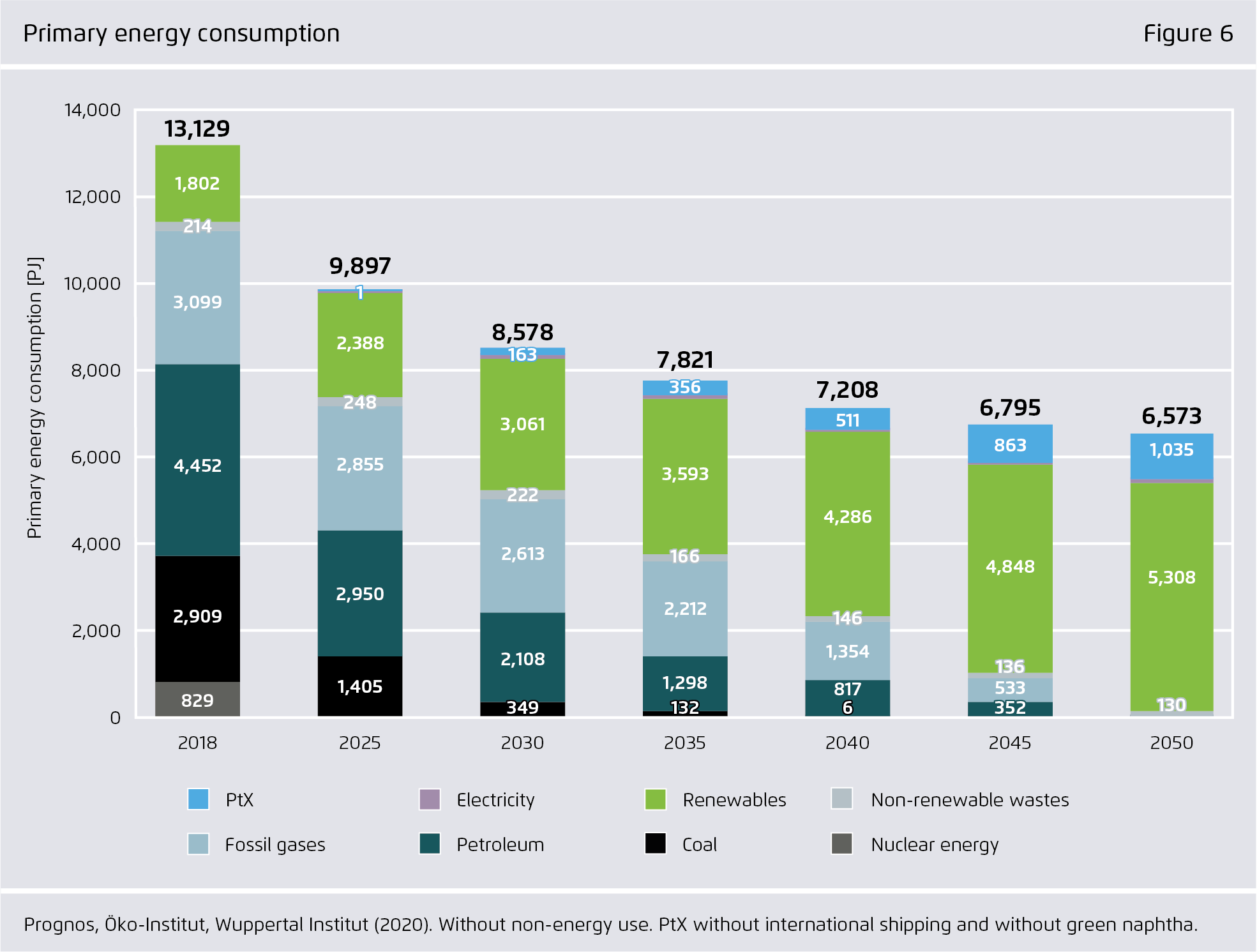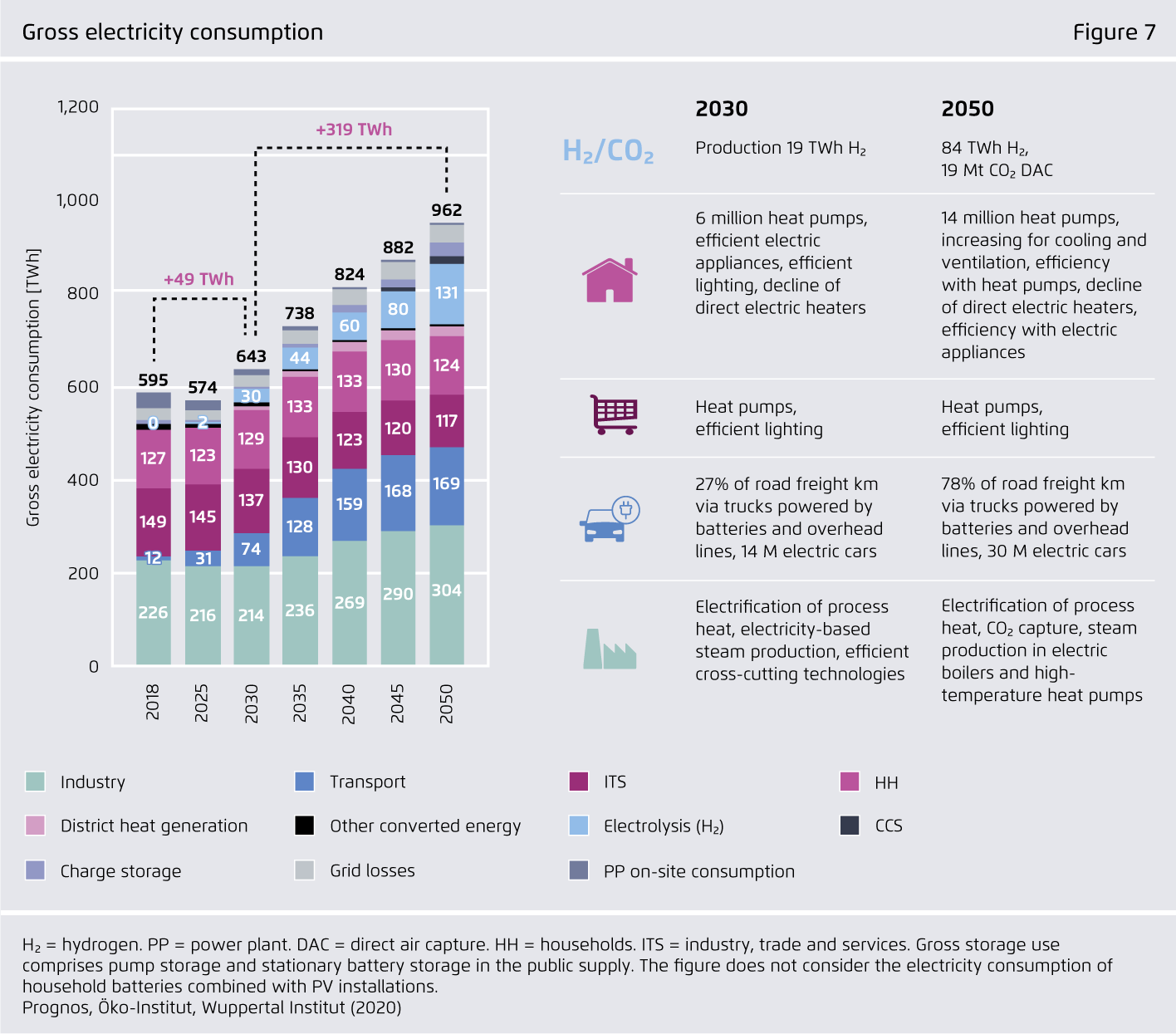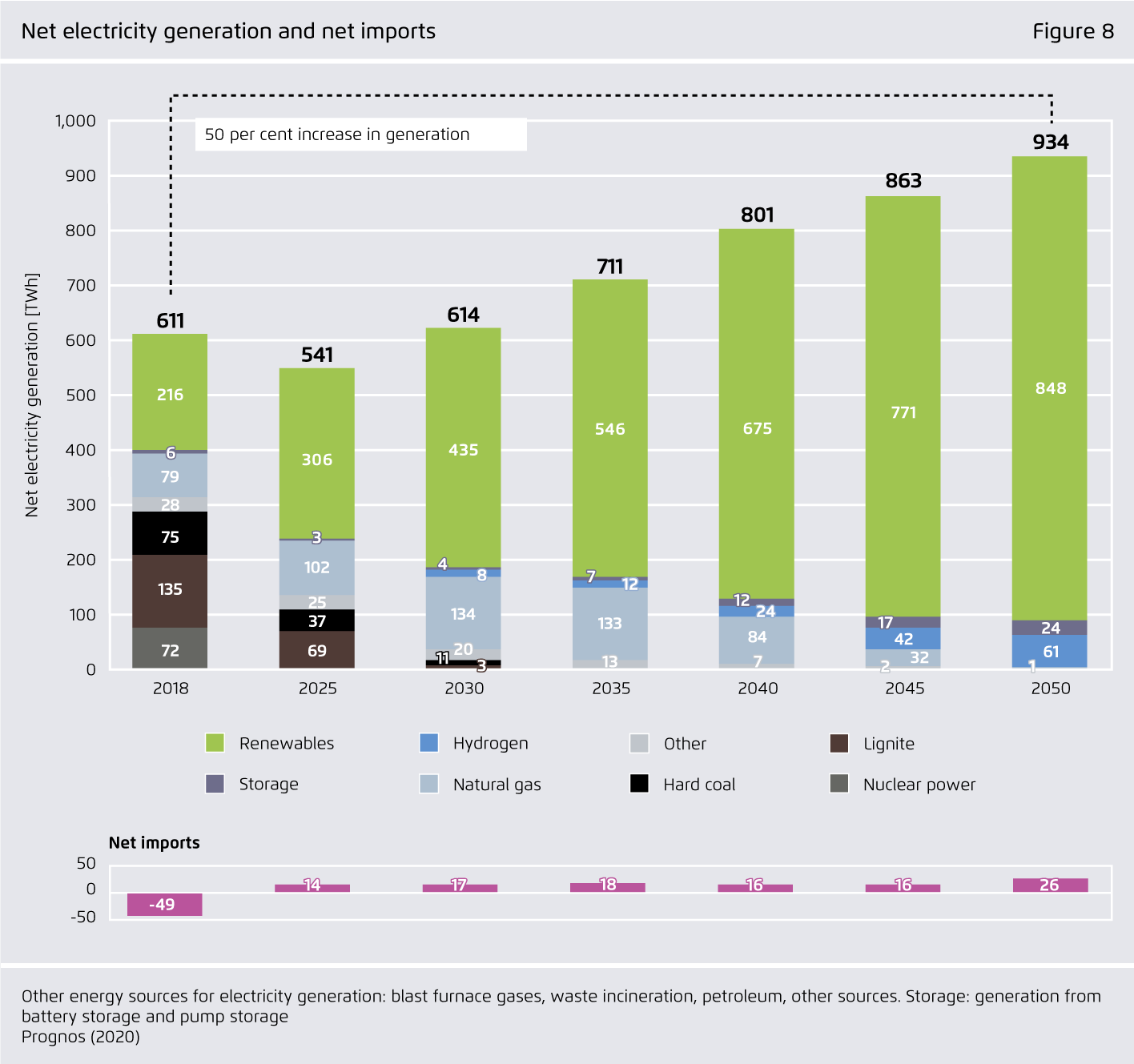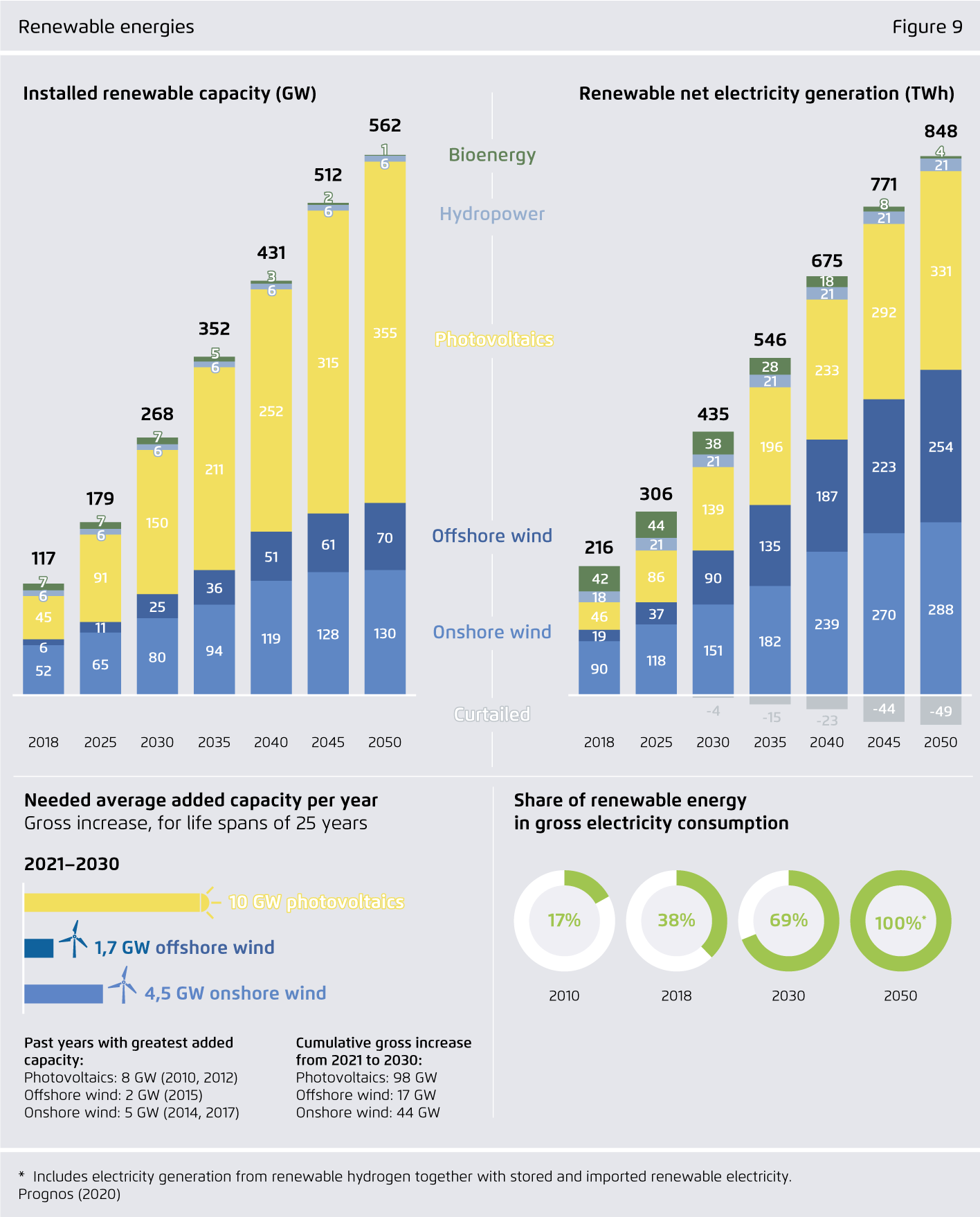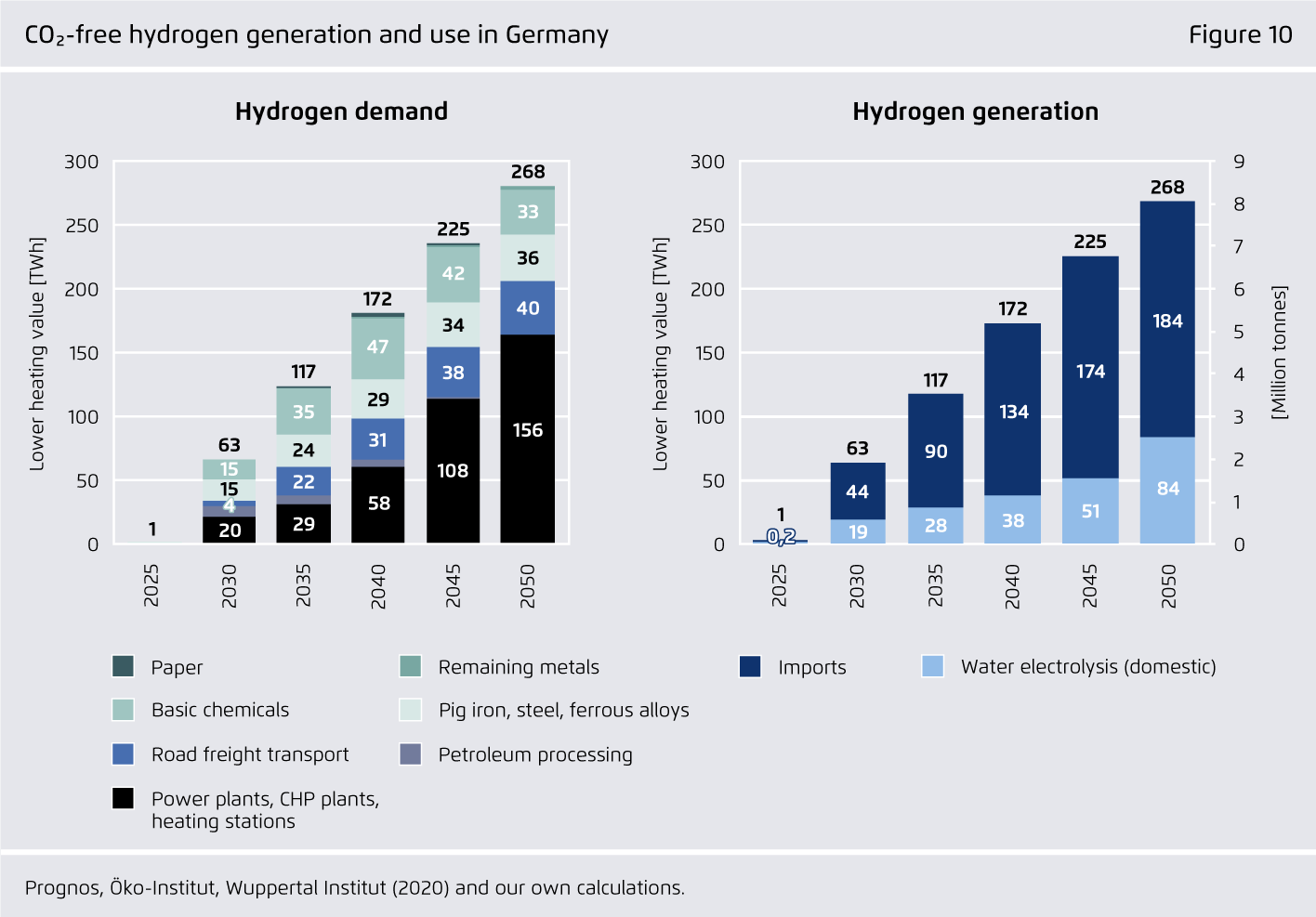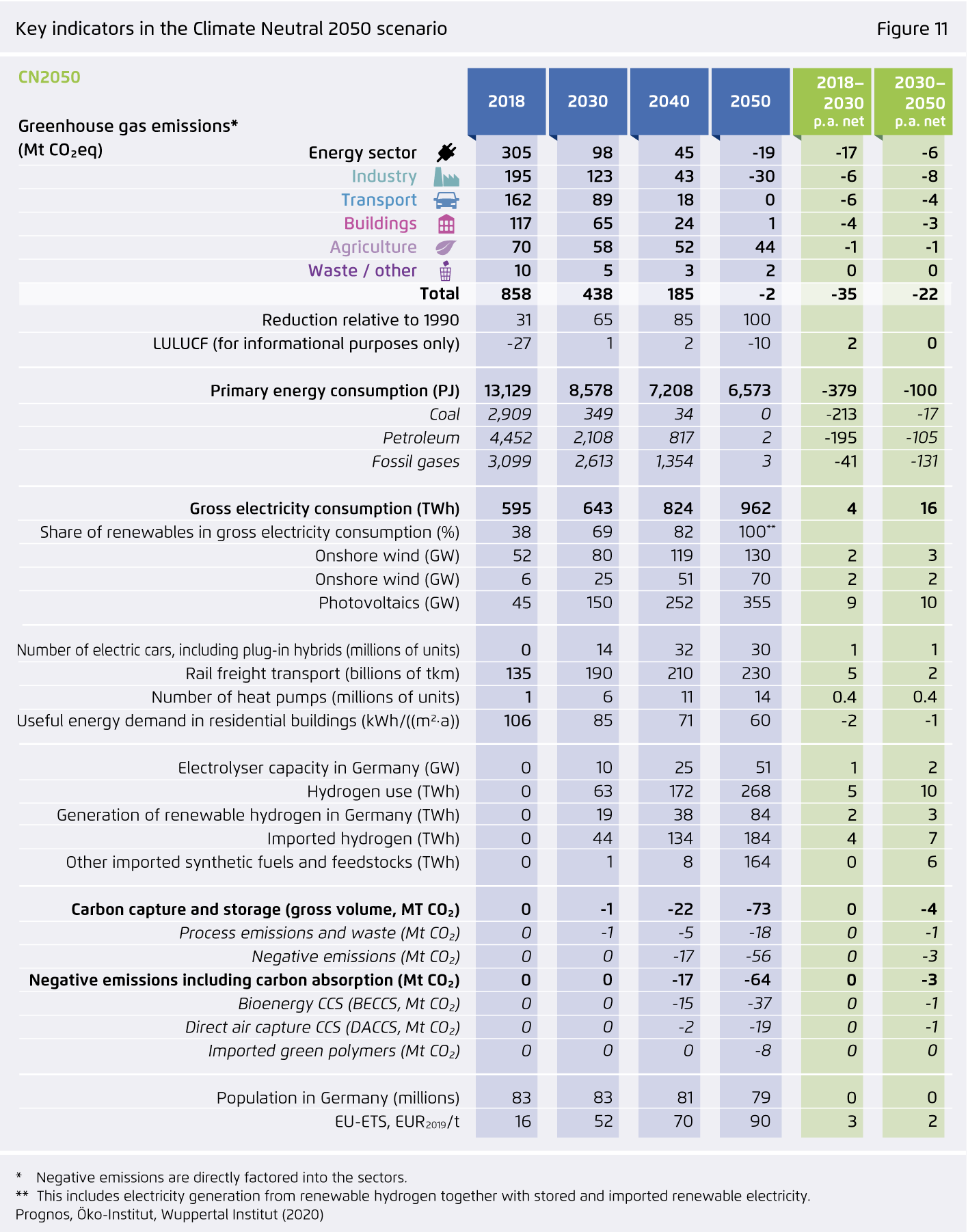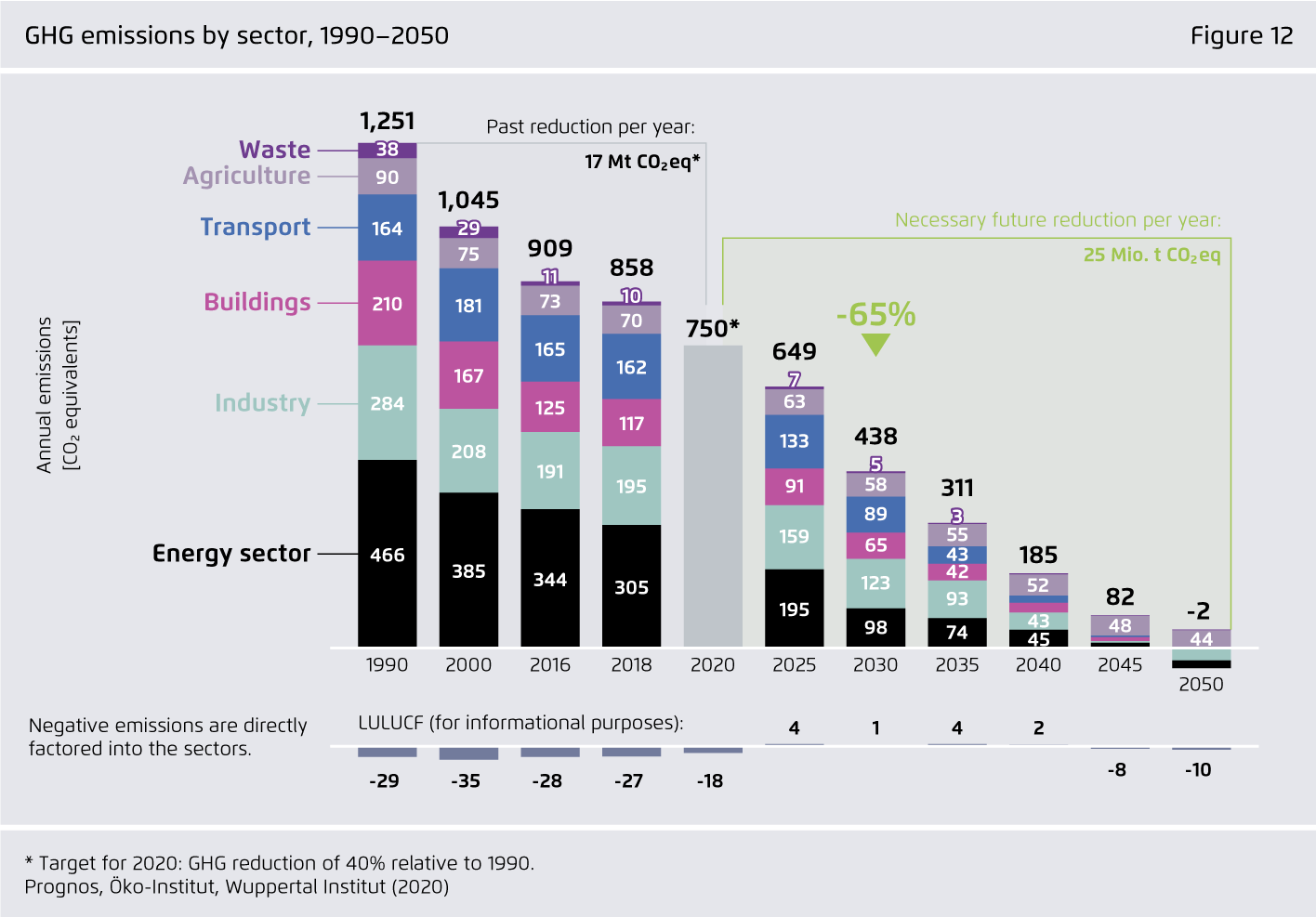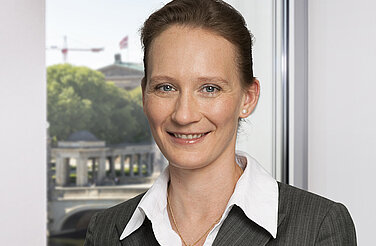-
Germany can achieve climate neutrality by 2050 in three steps while adhering to existing investment cycles.
The first step consists of a 65% reduction in emissions by 2030. The second step is the complete transition to climate-neutral technologies, for a total emissions reduction of 95%. The third step is the offsetting of residual emissions through carbon capture and storage.
-
The path to climate neutrality involves a comprehensive investment programme comparable in scope to the German economic miracle of the 1950s and 60s.
The core elements of the programme are the creation of a renewable-based energy sector, mass electrification, a smart and efficient modernization of buildings and the development of a hydrogen economy for the industrial sector. Besides achieving climate neutrality, the programme will also improve people’s quality of life by reducing noise and air pollution.
-
An enhanced German reduction target of 65% for 2030, in line with the requirements of the European Green Deal, will require significantly accelerating the green transition in the energy, transport and heating sectors.
This includes the complete phase-out of coal by 2030, a 70% share of renewables in electricity generation, 14 million electric cars on the road, 6 million heat pumps, an increase in the green retrofit rate of at least 50% and the use of some 60 TWh of clean hydrogen.
-
The next legislative period will determine how Germany goes about achieving climate neutrality by 2050 and a 65% reduction in GHG emissions by 2030.
Government action after the 2021 federal election will be pivotal for future climate policy. Intelligent policy instruments will be needed to modernise Germany’s economy and make it sustainable and resilient. They will also be needed to ensure that the structural changes are as fair and inclusive as possible.
This content is also available in: German
Towards a climate-neutral Germany
Three steps for achieving climate neutrality by 2050 and an intermediate target of -65% in 2030 as part of the EU Green Deal

Preface
The third year of drought in Germany, devastating forest fires in Australia and California, record temperatures at the North and South Poles – scientists’ dire climate warnings have become impossible to ignore. Fortunately, despite the COVID-19 pandemic, a number of countries have made major climate policy strides. The European Union, Great Britain, Japan, South Korea and many US federal states have all committed themselves to achieving climate neutrality by no later than 2050. Notably, China has also announced its own ambitious plans, recently pledging to make its economy climate neutral by 2060.
The climate policy developments in the past year point to the emergence of a new consensus. But achieving climate neutrality by mid-century will require more ambitious interim goals for 2030 than currently exist. The EU Commission has proposed that Europe increase its 2030 emissions reduction target from 40% to at least 55% relative to 1990 levels. Denmark plans to reduce its emissions by as much as 70%.
How can Germany build a society that does not rely on coal, oil and natural gas? And what will it need to do specifically over the next ten years? We commissioned Prognos, the Öko-Institut and the Wuppertal Institute to develop a feasible scenario for a climate-neutral Germany with economic efficiency, adherence to existing investment cycles and public acceptance in mind.
The resulting scenario shows that Germany can achieve climate neutrality by 2050 and reduce its emissions by 65% by 2030 as long as it greatly accelerates its pace of climate action. This report describes the concrete steps that German will have to take over the next 30 years in order to achieve these goals. We hope that the outlined proposals provide orientation in the ongoing debate, and serve as an impetus for new ideas as well.
Key findings
Bibliographical data
Downloads
All figures in this publication
Policy measures in the Climate Neutral 2050 scenario (CN2050) (GHG emissions in Mt CO₂eq)
Figure ES from Towards a climate-neutral Germany on page 9
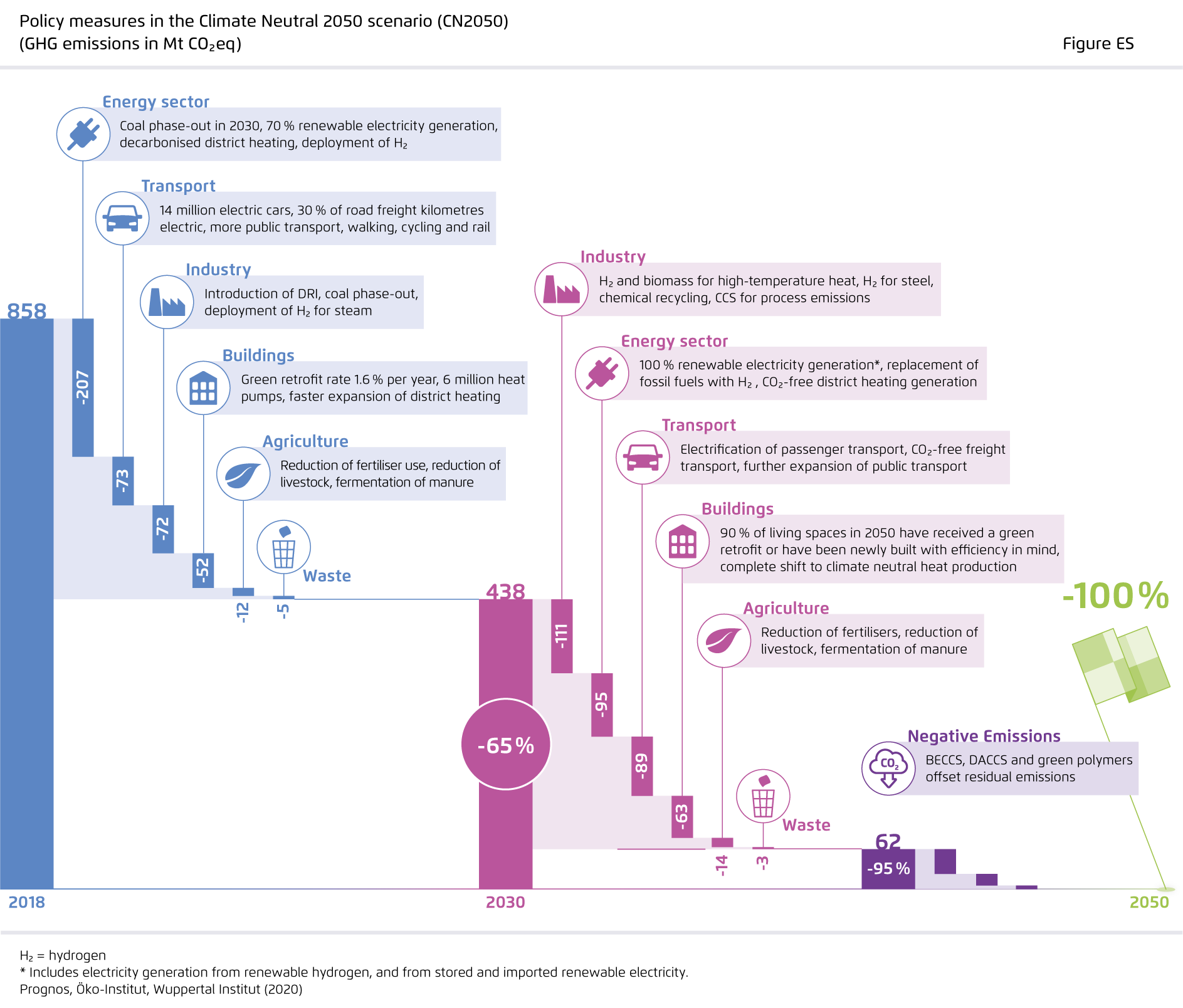
The reduction of greenhouse gas emissions from 1990 until today (in Mt CO₂ eq)
Figure 2 from Towards a climate-neutral Germany on page 14
